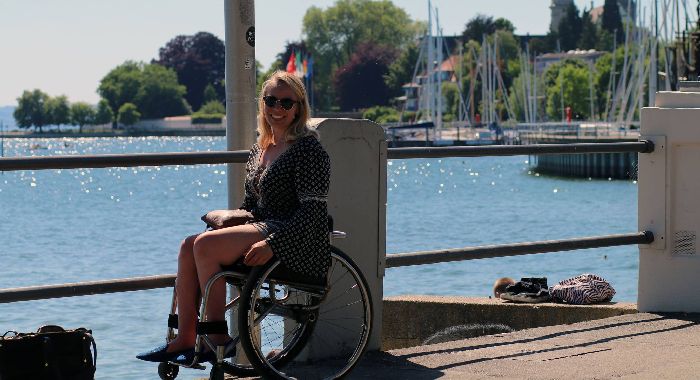
To Heal Or Not To Heal
A little voice carried across the table. “Why did you end MYSTIC that way?” Students gathered around waiting for me to sign their books. I heard her question and desperately wanted to answer. However, I had made a promise not to give away the ending to some of her fellow students who were halfway through MYSTIC.
Spoiler Alert! I’m going to give away the ending to MYSTIC so if you haven’t read it yet save this post for later.
Those that know me or have heard my author presentions know that my inspiration for MYSTIC was my daughter, Arielle. I had always enjoyed writing stories, but I never considered being an author until after Arielle became paralyzed in a car accident at the age of ten. My eyes were suddenly open to how some people viewed disability and the lack of children’s books that portrayed a character that was differently abled. As a teacher, I saw an opportunity to help able-bodied (non-disabled) children understand children who used wheelchairs and an opportunity for children who used wheelchairs to read about a strong female protagonist who happened to use a wheelchair.
To heal or not to heal that is a question most people who are able-bodied think they have the answer to. It’s to be healed. Healed from a disease, healed from a broken arm, broken heart, to pray for healing, most people assume everyone, even those with a spinal cord injury want to be healed.
Well, right after Arielle’s accident that’s what we wanted too. In fact, we misunderstood exactly what rehabilitation was when Arielle first went two weeks after becoming paralyzed. We thought she was going to rehab to learn to walk again. After a few days, we realized it was a place where she would learn how to live her life using a wheelchair.
A year and a half after the accident we decided to move to Michigan for a summer so Arielle could attend a special rehabilitation institute where she would have therapy three days a week in hopes that she would regain movement in her legs. I found myself questioning the idea of healing. What message was I sending to Arielle, who was now in 6th grade, about who she was? Was I telling her she wouldn’t be whole or complete unless she walked? Would she grow up to accept herself if she spent years of her childhood in therapy hoping to walk again? And then there was the concern that if I didn’t do all I could for her would she be upset with me when she was older?
Seeing how miserable she was living away from all her friends and attending therapy three days a week made me realize that walking again was not what was most important to her. She wanted to enjoy being a kid, the kid she was, not the kid she used to be or the kid others thought she should be. I had my answer. I needed to teach my daughter to accept herself, love herself.
Because I struggled with those questions while I was writing drafts of MYSTIC I knew from the very beginning that Amelia would return home from MYSTIC to a life using a wheelchair even though in MYSTIC she could walk and fly. I chose to have her healed and to return to the wheelchair specifically because I wanted to show that Amelia had grown so much by the end of the story she knew who she was. She loved herself. And isn’t that what everyone wants for their children? When we love ourselves, we’re able to love each other. It’s when we feel inadequate or less than that we become judgmental, negative, or full of jealousy and hatred. Those that love themselves change the world.
Arielle has listened to many strangers tell her, “I’ll pray for you.” Countless times she has been stopped in an airport or an aisle of a grocery store and told this. While the intention may be coming from a place of kindness what people don’t realize when they say this to someone using a wheelchair is that they’re implying: I believe you need healing. There’s something wrong with you. Or I see you as weak, and I’ll ask the God I believe in to make you strong because you have a disability. You should be like me. I can only write from what I understand from Arielle’s point of view, and when someone says this to her, she bites her lip and says, “thank you,” but it hurts.
Some people who use wheelchairs may want to be healed. Some don’t. I think it’s important for able-bodied (non-disabled) people to understand this. MYSTIC is a story about a girl who learns to accept and love herself.
LOVE YOURSELF As Well As Others This Valentine’s Day!
Arielle is a mentor to a fourth grader in Champaign, Illinois. I asked Arielle what they were doing for Valentine’s Day. She told me they were making Valentine cards to themselves. A flower and on each petal, she would have her mentee write something about herself that she loved. I wished I would have done that when I taught fourth grade! Brilliant!


